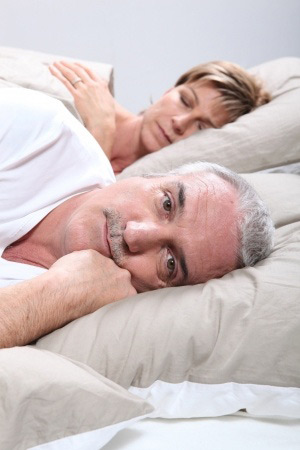 Each night, countless seniors toss and turn, just hoping for a better night’s sleep. Many more lie sleeping snugly in their senior apartments, without a care in the world— these seniors have kicked their bad sleep habits to the curb. In fact, according to the National Institutes of Health, nearly half of all Americans aged 60 and older are affected by sleeplessness that can last weeks or even months.
Each night, countless seniors toss and turn, just hoping for a better night’s sleep. Many more lie sleeping snugly in their senior apartments, without a care in the world— these seniors have kicked their bad sleep habits to the curb. In fact, according to the National Institutes of Health, nearly half of all Americans aged 60 and older are affected by sleeplessness that can last weeks or even months.
Sleep Awareness Week™, held March 2-8 in 2015, is an annual public awareness campaign that promotes healthy sleep—and it’s the perfect time for you to get a handle on your sleeping habits.
Recognize That How You Sleep Changes
Like other older adults, you need about the same amount of sleep as you did when you were younger— anywhere from seven to nine hours each night. While age does not necessarily have an effect on the amount of sleep you need, it can affect your sleep patterns in a way that makes it seem like you sleep more. It might take you longer to fall asleep, for example, so you end up spending more total time in bed.
Some senior sleep problems are associated with essential medications and are therefore difficult to overcome. Other sleep problems are the result of bad sleep habits. In these cases, a little behavior modification can help you get the sleep you need to feel well rested.
Kick These Habits to the Curb for a Better Night’s Sleep
Quit sleeping in a noisy location and stop lying awake at night wondering if you are safe. Look for a living arrangement with very little noise and a high level of security and safety. Senior apartments may promote sleep because they are safe, secure, and always quiet at night.
- Break your habit of sleeping in a room that is poorly suited for sleep. Your room should be dark, quiet, and well ventilated.
- Stop drinking caffeine earlier in the day. The effects of caffeine can last 8 – 14 hours, according to the American Academy of Sleep Medicine. Coffee, tea, and some soft drinks contain caffeine.
- Reduce your alcohol intake. While alcohol can help you fall asleep faster, it can interfere with deep sleep cycles or cause you to wake up in the middle of the night.
- Quit smoking. The nicotine in cigarettes is a stimulant that can keep you up at night.
- Avoid heavy meals just before bedtime. A light snack is okay but a big meal may cause you to feel uncomfortable when you lie down.
- Do not take certain medications before bedtime, if possible, as some medications (like allergy medications or corticosteroids) can interfere with sleep. If you have trouble sleeping and think it may be due to your prescription drug schedule, talk with your doctor before changing the way you take any medication.
Kick to the curb any bedtime habits that interfere with your sleep habits:
- If watching the news upsets you, for example, try catching an earlier broadcast.
- Avoid using social media, as it is easy to lose track of time and miss your bedtime.
- Try to go to bed at approximately the same time each night and get up around the same time in the morning.
New Habits to Help Seniors Sleep
Start new habits that make it easier to fall, and stay, asleep.
- Exercise each day. Regular physical activity helps you burn off excess energy and a good workout tires out your muscles. Finish exercising at least three hours before bedtime, though, to give your body time to calm down and relax.
- Read a book, take a bath, or drink a cup of chamomile tea to help you wind down at night.
Kicking some of these senior sleep habits to the curb can help you sleep better at night and feel better during the day. The changes can be as small as switching to decaffeinated coffee or as big as investigating new senior apartments in a quieter location. Learn how to pick up more habits for healthy sleep during Sleep Awareness Week this year.












